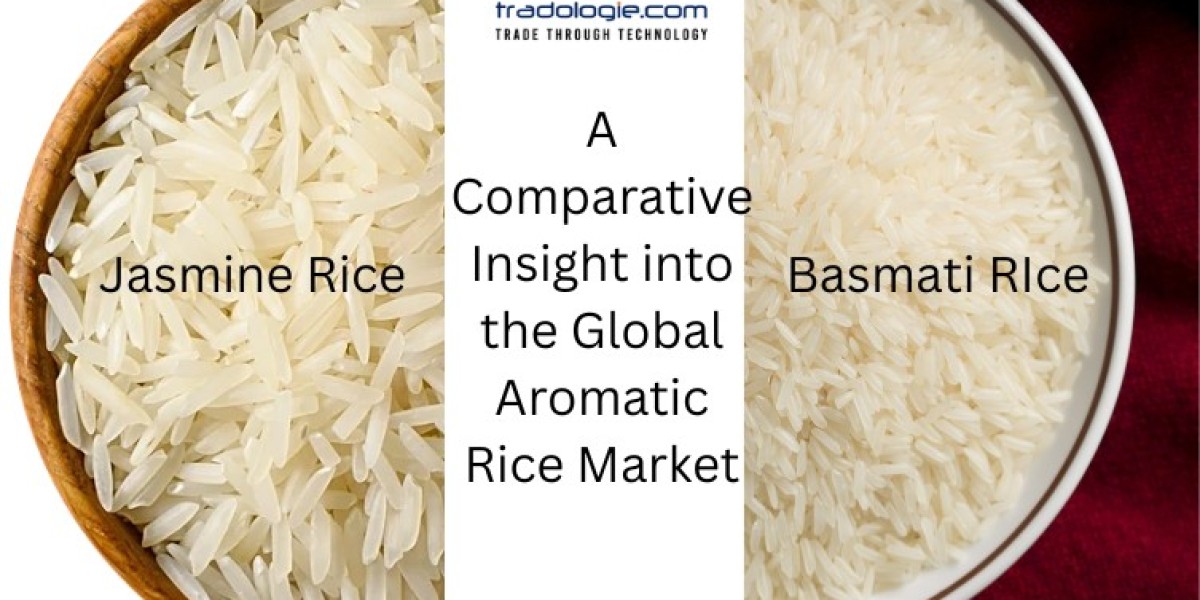Export Basmati rice and Jasmine rice are highly valued in the worldwide rice trade. Both are loved for their special smell and feel, but they are made for different tastes and markets. The global flavourful rice market is expected to reach more than USD 15 billion just in 2024. This shows that people are always wanting better grains. Understanding the minute distinctions between these two highly sought-after types is essential as basmati rice sellers and buyers get ready to meet this demand. Whether you want to import Basmati rice or look into Jasmine rice options, learning more can help you make better trade choices and move up in the market.
The Essence of Aromatic Rice - Look at Basmati and Jasmine
Both Basmati and Jasmine rice have a mix of rich, enticing smells that you can smell right away. Both of their histories, origins, have been very different. In the lush areas of India and Pakistan, a lot of basmati is grown. It smells like nuts and is a little dry and fluffy when it's done. This is different from jasmine rice, which is mostly from Thailand. It smells sweet and flowery and feels soft and sticky.
Market Dynamic- How Trade Works and How Prices Change
Countries that import Basmati rice include the United States, Saudi Arabia, Iran, and the UAE. Thanks to the global appeal of Thai cuisine, jasmine rice has gone from being a domestic favourite in Southeast Asia to a household name in the US and Europe.
Basmati rice is usually more expensive than other types of rice. Premium old Export Basmati rice that has been saved for up to one to two years is very popular because it tastes better and doesn't stick to your teeth. Even though jasmine rice is a little cheaper, it is the most popular type, especially in store and restaurant settings where people like their food to be soft and moist.
Trends Influencing the Future of Basmati and Jasmine Rice Trade
The market for flavourful rice around the world is changing a lot, which is good news for both basmati rice sellers and consumers. One big trend is that people are becoming more interested in high-end and healthy types of rice. More health-conscious markets are looking to import Basmati rice from reliable sources now that they know it has a low glycaemic index.
Sustainability is also becoming a strong reason to buy things. People are more likely to buy Export Basmati rice that has been certified as organic, fair trade, or climate-smart growing. In the same way, companies that ship jasmine rice are changing to appeal to current consumers by using eco-friendly farming methods.
Digitalisation is another important trend. In order to connect with reputable basmati rice sellers, international buyers now expect real-time buying solutions through online B2B platforms. Now, speed, openness, and tracking are not just options; they are expected norms.
Private labelling and customised packages are also changing the way established businesses work. Buyers around the world are looking for sellers who can send goods in bulk as well as named products that are ready to be sold.
Exporters and importers who can change with the times will be able to make more money, differentiate their brands, and get a better place in the tough flavourful rice market in the future.
Conclusion
The market for quality flavoured rice will only grow as people's tastes become more flexible and different types of food become more popular around the world. People who care about their health are starting to notice that Basmati has a low glycaemic index and Jasmine is gluten-free. This is another reason why they are so popular.
Direct farmer-seller relationships and online B2B sources are becoming increasingly important for basmati rice sellers to scale their businesses as a result of digitalisation and e-commerce.
To sum up, the flavourful rice change will be led by those who can adapt quickly, put money into quality, and know the complex tastes of their customers.



